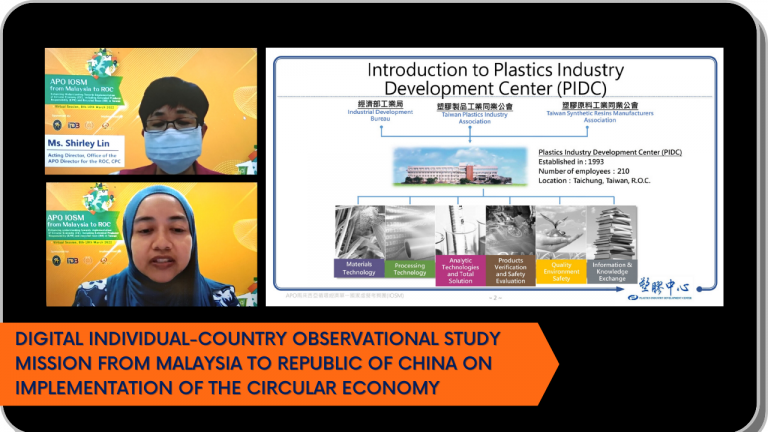
Select Page

The APO recognizes the diverse, unique strengths of its members and offers opportunities for mutual collective benefit through the Individual-country Observational Study Mission (IOSM) Program to tap each other’s strengths to inspire and guide the development of strategies, policies, and action plans for new initiatives and/or evolving ideas that are critical for development.
Plastics are indispensable material, although plastic waste pollution is a major environmental issue affecting the health and economy of all countries. Petroleum-based plastics can take 20 to 500 years to decompose, depending on product type. The circular economy model is one opportunity to shift to more sustainable practices by closing material loops. The circular economy is based on the practices of reduction, reuse, recovery, and recycling of materials and energy.
Malaysia launched its Roadmap Towards Zero Single-use Plastics, 2018–2030, with the mission of creating a cleaner, healthier environment by 2030. The government is seeking to address plastic pollution through a holistic approach in an environmentally sound manner, taking into account the public interest, readiness of industry, and sustainability.
To support the achievement of the roadmap goals, the APO Secretariat in collaboration with the China Productivity Center organized a Digital IOSM from Malaysia to the Republic of China (ROC) on Implementation of the Circular Economy, 8–10 March. The mission consisted of 26 participants from relevant ministries and public-sector organizations to enhance their understanding of how to undertake circular economy methods, including extended producer responsibility, recycled resin (RR), and the HALAL RR scheme in the ROC.